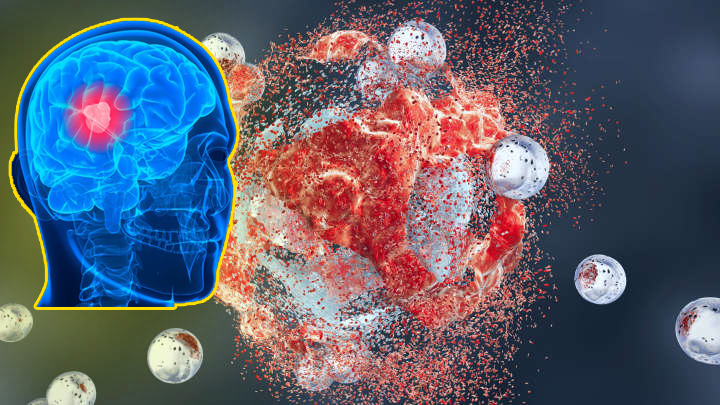Clinical trials undertaken at the Mayo Clinic are reporting an unlikely weapon in the fight against cancer — the measles virus.
Experts have long known the fact that getting infected with the measles can sometimes trigger a spontaneous reduction in the size of tumors, but recent clinical trials conducted at the Mayo Clinic have shown just what a powerful weapon the little virus can actually be.
In a trial carried in 2014, a strong dose of the measles virus was prescribed to late-stage cancer patient putting her into long-term remission.
This terminally ill woman had undergone every type of chemotherapy available as well as two stem cell transplants, only to relapse again and again.
She was diagnosed with advanced multiple myeloma, a deadly blood cancer that spread throughout her body and bone marrow when experts offered her a last-ditch resort — a heavy dose of the measles.
Within 5 minutes, she got an intense headache and a fever of 105, accompanied by vomiting and shaking.
Within the first 36 hours of the treatment, a golf ball size tumor on her forehead had gone, and within two weeks there was no cancer detectable in her body.
“It’s been the easiest treatment I’ve done by far,” she told CNN.
The virus strain was managed and minimised in a lab, and then given in a dose effective enough to vaccinate 10 million people.
Cancer treatment using viruses is not a new approach. Mayo Clinic researchers say “virotherapy” has been used successfully on thousands of cancer patients, but this is the first case where a patient with cancer spread throughout her body had gone into remission.
“I think we succeeded because we pushed the dose higher than others have pushed it,” said lead study author Dr Stephen Russell. “And I think that is critical. The amount of virus that’s in the bloodstream really is the driver of how much gets into the tumors.”
Mayo Clinic researcher Dr Angela Dispenzieri explains the measles virus makes cancer cells join together and explode. There’s also confirmation that the virus stimulates the immune system, helping it identify any returning cancer cells and “mop them up.”
Succeeding clinical trials have shown similar outcomes with ovarian cancer, breast cancer and non-Hodgkins lymphoma, according to a 2016 research paper titled “Measles to the Rescue.” Also, current trials are studying the effect of the measles on glioblastoma multiforme, mesothelioma and squamous cell carcinoma.
“We recently have begun to think about the idea of a single shot cure for cancer — and that’s our goal with this therapy,” Russell stated.
If you found this article informative, dont forget to SHARE it on Facebook!
Source


Leave a Reply